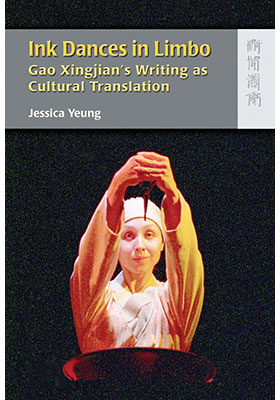Ink Dances in Limbo
Gao Xingjian’s Writing as Cultural Translation
(被忽略的筆墨舞蹈:作為文化翻譯的高行健之寫作)
ISBN : 978-962-209-921-0
July 2008
200 pages, 6″ x 9″
- HK$295.00
Ebooks
Also Available on
In this pioneering study of the entire written works of Gao Xingjian (高行健), China’s first winner of the Nobel Prize for Literature, Jessica Yeung analyses each group of his writing and argues for a reading of Gao’s writing as a phenomenon of “cultural translation”: his adoption of Modernism in the 1980s is a translation of the European literary paradigm; and his attempt at postmodernist writing in the 1990s and 2000s is the effect of an exilic nihilism expressive of a diasporic subjectivity struggling to translate himself into his host culture. Thus Dr Yeung looks at Gao’s works from a double perspective: in terms of their relevance both to China and to the West.
Avoiding the common polarized approaches to Gao’s works, her dual approach means that she neither extolls them as the most brilliant works of contemporary Chinese literature eligible for elevation to the metaphysical level, nor dismisses them as nothing more than elitist and misogynist mediocre writings; rather she sees this important body of work in a more nuanced way.
This book is suitable for all readers who are interested in contemporary Chinese culture and literature. It is particularly valuable to students who are keen to engage with the issue of contemporary China-West cultural relationships.
“This is a much-needed book, steering a middle course between mainland critics, who tend to dismiss Gao as a cultural renegade and a political defector, and diasporic critics, who view Gao as the most literary of heroic dissidents. The virtue of Yeung’s treatment is that she reads Gao from a neutral standpoint, neither censorious nor adulatory. For her, Gao’s corpus is worth reading as much to criticize and to understand as to admire. This is an invaluable (and uniquely unbiased) treatment of Gao.” —Eugene Eoyang, Chair Professor of Humanities, Lingnan University, Hong Kong
“Yeung’s erudite, yet eminently readable, monograph is the fruit of two decades of research and reflection on the work of Gao Xingjian. Her extensive knowledge of both Chinese and European modern literary traditions have enabled her to interpret with finesse this most cosmopolitan of Chinese writers. Elegantly written, Ink Dances in Limbo, is one of the most insightful and balanced studies of Gao’s work to date.” —Gregory Lee, Professor of Chinese and Transcultural Studies, University of Lyons, France




